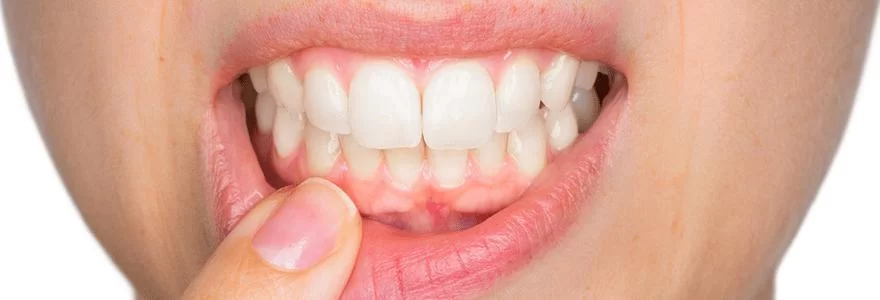
- 1-Understanding Bleeding Gums: Causes and Symptoms
- 2-How to Treat Bleeding Gums Effectively
- 3-Tips for Preventing Bleeding Gums
- 4-Real-Life Stories: Overcoming Bleeding Gums
- 5-When to See a Dentist About Bleeding Gums
1. Understanding Bleeding Gums: Causes and Symptoms
Bleeding gums are a common oral health issue, often indicating that your gums are irritated or infected. The most common cause of bleeding gums is gingivitis, an early form of gum disease caused by plaque buildup. When plaque is not removed properly through brushing and flossing, it can lead to the inflammation of the gums, causing them to bleed, especially when brushing or flossing. Other possible causes of bleeding gums include periodontitis (a more advanced form of gum disease), hormonal changes, certain medications, or even poor-fitting dental devices.
Common symptoms of bleeding gums include:
- Bleeding when brushing or flossing
- Swollen, red, or tender gums
- Bad breath or a bad taste in the mouth
- Receding gums or pockets forming between teeth and gums
If you experience any of these symptoms, it's important to take immediate action to address the problem and prevent it from worsening.
2. How to Treat Bleeding Gums Effectively
Treating bleeding gums starts with understanding the root cause of the problem. If bleeding is due to gingivitis, improving your oral hygiene routine is often enough to stop the bleeding. Here are some steps you can take to treat bleeding gums:
- Brush Gently with a Soft-Bristled Toothbrush: Use a soft-bristled toothbrush and brush gently along the gumline. Avoid using a hard-bristled brush, which can irritate the gums further.
- Floss Regularly: Flossing helps remove plaque and food particles between your teeth that can contribute to gum disease. If you experience discomfort or bleeding when flossing, continue doing so gently to allow your gums to heal.
- Use an Antibacterial Mouthwash: Mouthwash that contains antibacterial properties, such as chlorhexidine, can help reduce plaque and bacteria in the mouth, aiding in gum healing.
- Apply a Warm Saltwater Rinse: A warm saltwater rinse can help soothe inflamed gums and promote healing. Simply dissolve a teaspoon of salt in a glass of warm water and swish it around your mouth for 30 seconds.
- Maintain a Balanced Diet: A diet rich in vitamins and minerals, particularly vitamin C, helps strengthen gum tissue and improve overall oral health. Foods such as citrus fruits, leafy greens, and dairy products can support gum health.
If your bleeding gums persist despite these efforts, it may be a sign of a more serious condition that requires professional dental treatment.
3. Tips for Preventing Bleeding Gums
Prevention is always better than treatment when it comes to bleeding gums. Incorporating a few simple habits into your daily routine can help prevent gum disease and maintain healthy gums:
- Brush Twice a Day: Brush your teeth at least twice a day for two minutes to remove plaque and bacteria from your teeth and gums.
- Floss Daily: Flossing removes plaque and food particles from between your teeth and under the gumline, areas that brushing alone can't reach.
- Visit Your Dentist Regularly: Regular dental checkups and professional cleanings help detect early signs of gum disease and ensure that plaque and tartar are removed before they cause damage.
- Use a Soft-Bristled Toothbrush: A soft-bristled toothbrush is gentler on your gums and can help prevent irritation, especially if you tend to brush aggressively.
- Avoid Smoking: Smoking is a major risk factor for gum disease. Quitting smoking can significantly improve your gum health and overall oral hygiene.
By following these tips, you can prevent bleeding gums and maintain a healthy, beautiful smile for years to come.
4. Real-Life Stories: Overcoming Bleeding Gums
Many individuals have successfully addressed bleeding gums with the right treatment and preventive care. For example, Sarah, a 40-year-old woman, began experiencing bleeding gums after neglecting her oral hygiene for a few months. After incorporating better brushing and flossing techniques, along with using an antibacterial mouthwash, her bleeding stopped within a few weeks. She noticed that her gums became healthier and less inflamed, and she was able to maintain her oral health with regular checkups.
Similarly, Mark, a 55-year-old man, was suffering from severe gum disease and bleeding gums due to poor oral hygiene and smoking. After quitting smoking and committing to a more diligent brushing and flossing routine, his gum health improved significantly. With the help of his dentist, he was able to restore his gums to a healthy state and avoid further complications like tooth loss.
These real-life stories show how proper care, along with lifestyle changes, can effectively treat and prevent bleeding gums, leading to better overall oral health.
5. When to See a Dentist About Bleeding Gums
If you experience persistent or severe bleeding gums, it’s important to see a dentist. Some signs that require professional attention include:
- Bleeding that lasts more than a few days or recurs frequently
- Severe gum pain or swelling
- Gums that recede or form pockets around your teeth
- Bad breath that doesn’t go away
A dentist can provide a thorough examination, diagnose the underlying cause of your bleeding gums, and recommend appropriate treatment options, such as scaling and root planing, or prescribe antibiotics if necessary. Timely intervention is essential to prevent gum disease from advancing to a more serious stage.







 Dr. Omid R. Kashani, DDS - Dental Care 2000 Plus, Monrovia4.0 (19 review)
Dr. Omid R. Kashani, DDS - Dental Care 2000 Plus, Monrovia4.0 (19 review) Comfort Dental4.0 (158 review)
Comfort Dental4.0 (158 review) Long Beach Dental Arts, PC5.0 (2 review)
Long Beach Dental Arts, PC5.0 (2 review) CHAVDENTAL MATAMOROS4.0 (28 review)
CHAVDENTAL MATAMOROS4.0 (28 review) Dove Dental Group5.0 (1060 review)
Dove Dental Group5.0 (1060 review) Michael J. Whitted DDS4.0 (140 review)
Michael J. Whitted DDS4.0 (140 review) The Importance of Oral Health Education During Pregnancy for a Healthy Pregnancy
The Importance of Oral Health Education During Pregnancy for a Healthy Pregnancy Best Tips for Brushing Your Teeth Properly for Healthy Gums: Essential Techniques for Oral Health
Best Tips for Brushing Your Teeth Properly for Healthy Gums: Essential Techniques for Oral Health Why Skipping Dental Checkups Can Lead to Bigger Oral Health Problems
Why Skipping Dental Checkups Can Lead to Bigger Oral Health Problems Advantages of Porcelain Dental Restorations
Advantages of Porcelain Dental Restorations How Can Diabetes Cause Tooth and Gum Problems? Preventing and Managing Oral Health Issues
How Can Diabetes Cause Tooth and Gum Problems? Preventing and Managing Oral Health Issues Healthy Habits for Promoting Good Oral Health and Hygiene: Tips for a Healthy Smile
Healthy Habits for Promoting Good Oral Health and Hygiene: Tips for a Healthy Smile